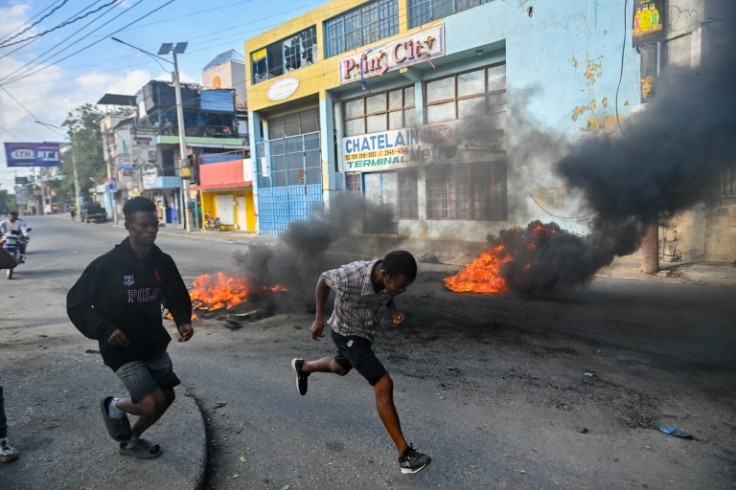
Unrelenting gang violence in Haiti has led to a significant exodus from different cities, with over 578,000 people fleeing their homes since 2021, according to the U.N. migration agency.
This mass displacement is severely straining the resources of already impoverished cities and towns across the country. The number of people fleeing surged by 60 percent from March to May this year, driven by escalating attacks on critical infrastructure such as the international airport and main seaport, along with the widespread opening of prisons and attacks throughout the capital, Port-au-Prince.
With the Dominican Republic closing its border and regional neighbors intercepting boats, the majority of displaced individuals are heading south, crowding into towns like Les Cayes, according to a new report by The Washington Post.
This influx is exacerbating existing challenges. Mayor Claire Daphné France reports that the city, which has a population of 125,000, now hosts an additional 30,000 displaced people, leading to increased insecurity and a rise in violence. The sudden increase in population has stretched local services thin, affecting schools, health care, and basic utilities. The new school year, which has been delayed by a month due to security concerns, will start with shortages of teachers and classrooms.
The security situation in Port-au-Prince remains dire, with paramilitary gangs still controlling approximately 80 percent of the capital. From April through June, nearly 1,400 people were reported wounded or killed, with a notable increase in kidnappings and rapes by gang members. The violence has also resulted in a rise in children living on the streets, many of whom are at risk of becoming involved with gangs.
The Kenyan-led UN security force, its first tranche deployed in June, has yet to show a significant impact.
The interim government and the U.N.-backed security force aim to stabilize the country and facilitate elections by February 2026, but doubts about the feasibility of this timeline persist, including from Haitian officials. Humanitarian aid remains insufficient, with only 25 percent of the requested $674 million fulfilled, while nearly half of Haiti's population faces acute food insecurity.
The displacement has also strained educational systems and local infrastructure. Many of the displaced arrived unprepared, lacking necessary documentation for services such as banking and schooling. Schools in the south, already reeling from previous natural disasters, are ill-equipped to handle the new influx of students.
© 2024 Latin Times. All rights reserved. Do not reproduce without permission.









